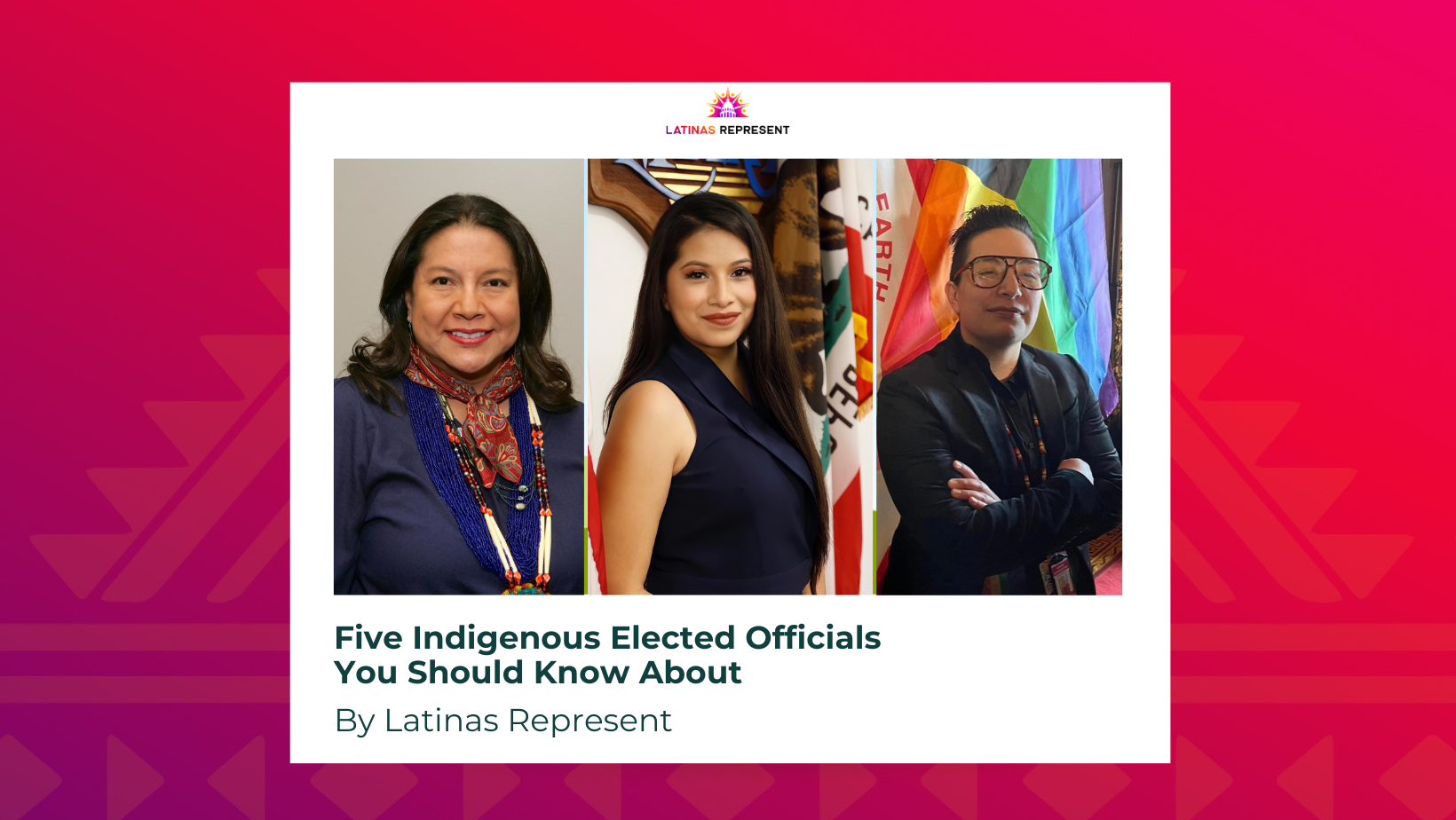
As November unfolds, Latinas Represent is excited to continue celebrating Native American Heritage Month!
Join us in a collective celebration, where we pay homage to the remarkable cultural richness and invaluable contributions of Indigenous peoples. Below we’ve created a list spotlighting five inspiring Indigenous elected officials who are trailblazing toward a more inclusive and representative democracy for us all. Check out their amazing stories and share them with your amigas!
Elsa Mejía, Madera (CA) City Council, District 5
Elsa Mejía is the first Mixteca to serve on a U.S. city council. She is the proud daughter of Indigenous immigrant farmworkers from Oaxaca, Mexico.
Elsa was involved in social justice causes, including immigration reform and workers’ rights, since she was a teen. As a high school student, she advocated before the city council to secure land for Madera’s first community garden.
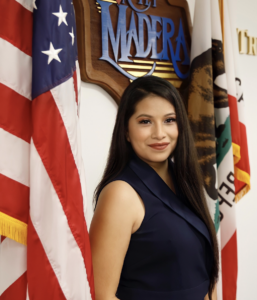
Alicia Kozlowski, Minnesota House of Representatives, District 8B
Born in Duluth, Minnesota, Alicia Kozlowski is the child of a Mexican father and a Fond du Lac Band Ojibwe mother.
From 2019 to 2021, Alicia worked as a community relations officer for the City of Duluth and Mayor Emily Larson where they helped create a Missing and Murdered Indigenous Women, Girls, and Two Spirit People Reward Fund, the first in the state.
In 2022, Alicia was elected to represent District 8B in the Minnesota House of Representatives, making them the first ever non-binary person elected to the Minnesota Legislature .
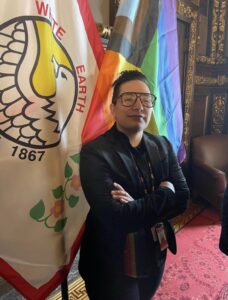
Sally Ann Gonzales, Arizona State Senate, District 20
Sally Ann Gonzales was born in Brawley, California and raised in the Yaqui community of Guadalupe, Arizona.
Sally holds a Masters in Multicultural Education from the University of Arizona and was a full time education professional before beginning her political career.
In 1992 she was elected to the Pascua Yaqui Tribal Council and served until 1996 when she was elected to the Arizona House of Representatives. In 2022, Sally was elected to represent District 20 in the Arizona State Senate.
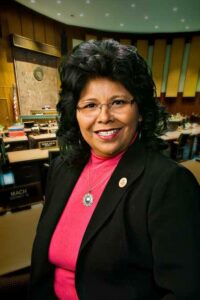
April Fournier, Portland (ME) City Council, At-Large
April Fournier is a member of the Dine’ (Navajo) Nation and has been an advocate for indigenous rights throughout her adult life. She co-founded the first all-Indigenous roller derby team, comprising more than 20 tribal nations. She has worked internationally to support diversity, equity and inclusion in sports.
When first elected in 2020, April became the first Native candidate elected to the Portland City Council. She was re-elected in 2023 and is currently the only Native elected in Maine with voting power.
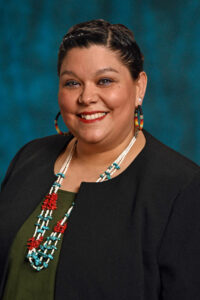
Carole Cadue-Blackwood, Lawrence (KS) Public Schools Board of Education
Carole Cadue-Blackwood is a recently re-elected member of the Lawrence, Kansas Board of Education and an enrolled member of the Kickapoo Tribe in Kansas.
As a social worker and an educator activist, Carole also supports public education in her role as an appointee to the Kansas Advisory Group on Juvenile Justice and Delinquency Prevention Group and on the Kansas Association for Native American Education.
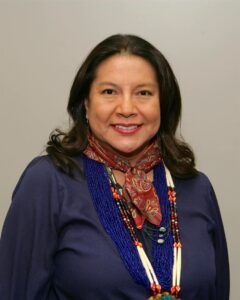
We aim to track Latina elected officials at all levels of government. If you are a current elected official who identifies as Latina and are not currently listed on our map, please submit your information below. Your submission will be reviewed prior to being added to the map.
Source: National Hispanic Leadership Agenda
The word Hispanic is closely tied to the U.S. government and its efforts to identify groups of people, which defines it as “Americans of Spanish origin or descent.” Under this definition, Hispanic only refers to people who are originally from Spanish-speaking countries. This term includes people from Spain but excludes people from Brazil. Although this term is widely used to describe a pan-ethnic Spanish-speaking group of people, it is not universally embraced by the communities who have been labeled as such. Due to its connection to Spanish colonization, some view the term Hispanic as a Eurocentric label that erases the Indigenous and Afro-Latino heritage of people from Latin America.
The terms Latino, Latina, Latin@, Latine, and Latinx refer to a person or group of people of Latin American or Caribbean origin or descent; this includes people from all countries in Latin America and the Caribbean but excludes Spain. When used in the singular form, Latino refers specifically to a man or boy, which is why it is necessary to use the term Latina when referring to women or girls of Latin American origin. The term “Latino” applies to a broader group of people in Spanish because the language is gendered and the masculine forms of words may also be considered gender-neutral, which means that the language itself sets a baseline that is both heterosexual and masculine and by default exclusionary. The term “Latinx” arose out of a desire to have a gender-neutral term and is used to refer to people of Latin American or Caribbean origins and is inclusive of those who identify along a gender spectrum and diverse sexual orientations and gender identities. Latinx term began appearing on the Internet in queer communities in the United States; however, it is not always considered the perfect response to the search for a postcolonial word because it requires an understanding of the English language and tends to highlight people of mestizo identity while erasing Indigenous and Afro-Latino identities. Some also have used the term “Latin@” to be inclusive, using the @ symbol to represent both an O and an A. More recently, “Latine” has emerged as an alternative to Latinx as a gender-neutral term rooted in the Spanish language. It is starting to be used in some parts of Latin America and the Caribbean and is also starting to gain some recognition in the United States.
ngshgjhrjhtrhthhewthejhfjthejhjhtjhewthewthw